Robotic Process Automation (RPA) software is a technology that uses software robots or bots to automate repetitive and rule-based tasks in business processes. These bots are programmed to mimic human interactions with software applications and systems, enabling them to perform tasks such as data entry, data manipulation, and data analysis.
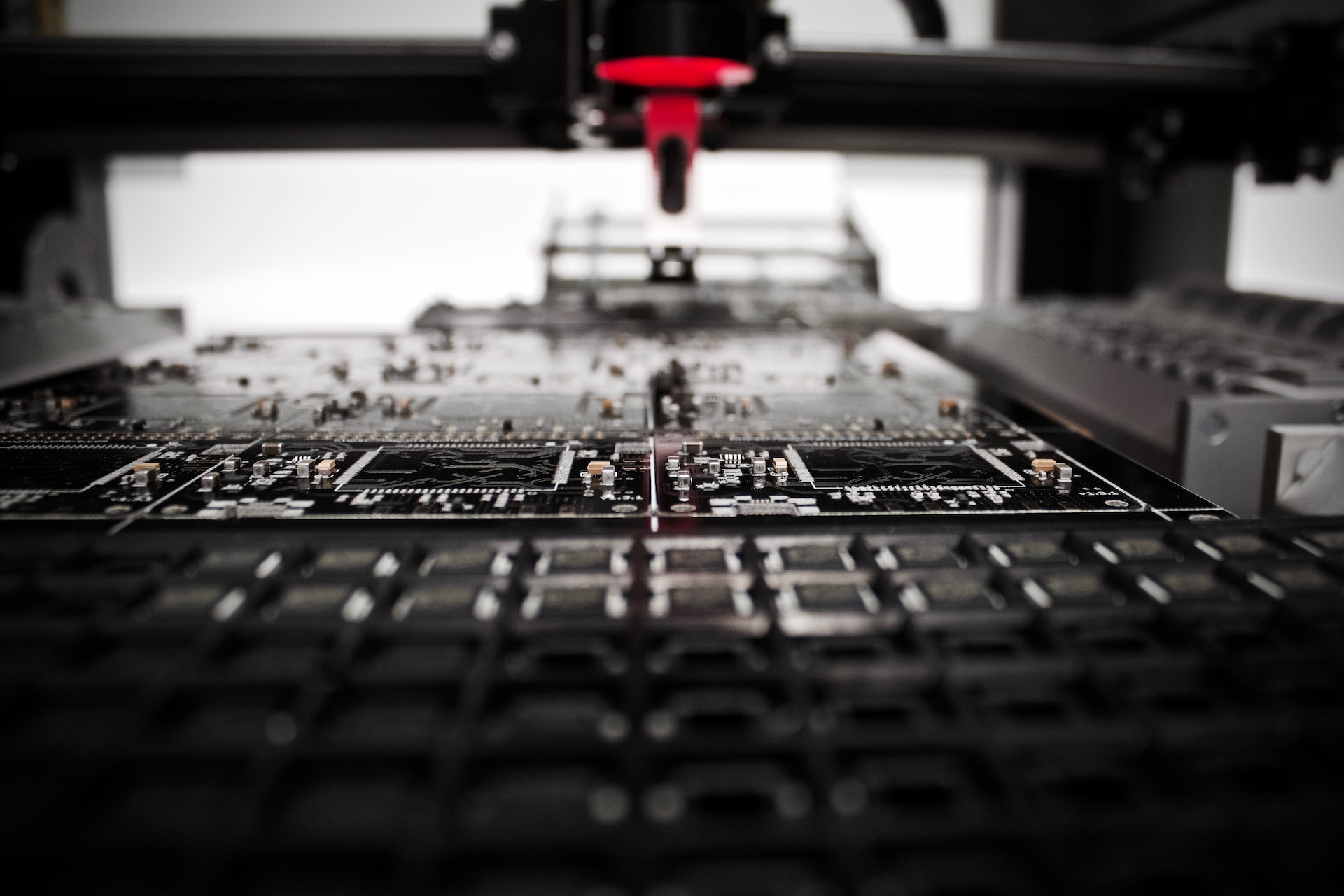
RPA software operates on a user interface level and can work with any application, whether it is a legacy system, a web-based application, or even a virtual environment. It uses the same front-end interface that a human user would use, allowing it to interact and extract data from various sources, such as websites, spreadsheets, and databases.
One of the key benefits of RPA software is its ability to improve operational efficiency and accuracy. By automating repetitive tasks, RPA eliminates the risk of human errors and the need for manual data entry. This significantly reduces the time and effort required to complete these tasks, allowing employees to focus on more valuable and strategic activities.
RPA software can also increase productivity by enabling 24/7 processing of tasks. Since the bots can work around the clock without any breaks or holidays, businesses can achieve higher output and faster turnaround times. Moreover, RPA software allows for scalability, as additional bots can be easily deployed to handle increased volumes of work.
In addition to efficiency and productivity gains, RPA software also ensures compliance and data security. By automating the data entry process, RPA eliminates the need for humans to handle sensitive information manually, reducing the risk of data breaches and unauthorized access. Furthermore, RPA software tracks and logs every transaction, providing a clear audit trail and enhancing compliance with regulatory requirements.
Another advantage of RPA software is its flexibility and ease of implementation. Unlike traditional IT solutions, RPA software does not require complex integrations or changes in the underlying systems. It can be implemented quickly, allowing businesses to start automating processes and reaping benefits within a short period of time. Moreover, RPA software is non-intrusive, as it operates on the application layer and does not modify the existing IT infrastructure.
RPA software can be applied to a wide range of industries and functions. It can automate tasks in finance and accounting, human resources, customer service, supply chain management, and many other areas. Some common use cases include invoice processing, order fulfillment, data extraction, report generation, and employee onboarding.
While RPA software offers significant advantages, it is important to note that it is not a panacea for all business challenges. It is most effective when used for high-volume, repetitive tasks that follow well-defined rules and procedures. Complex decision-making and tasks that require human judgment are better suited for other technologies, such as artificial intelligence and machine learning.
Robotic Process Automation (RPA) software is a powerful technology that uses software robots to automate repetitive and rule-based tasks in business processes. It improves operational efficiency, accuracy, and compliance, while also increasing productivity and scalability. RPA software is flexible, easy to implement, and applicable to a wide range of industries and functions. However, it is important to understand its limitations and use it in conjunction with other technologies to achieve the best results.
ABBYY
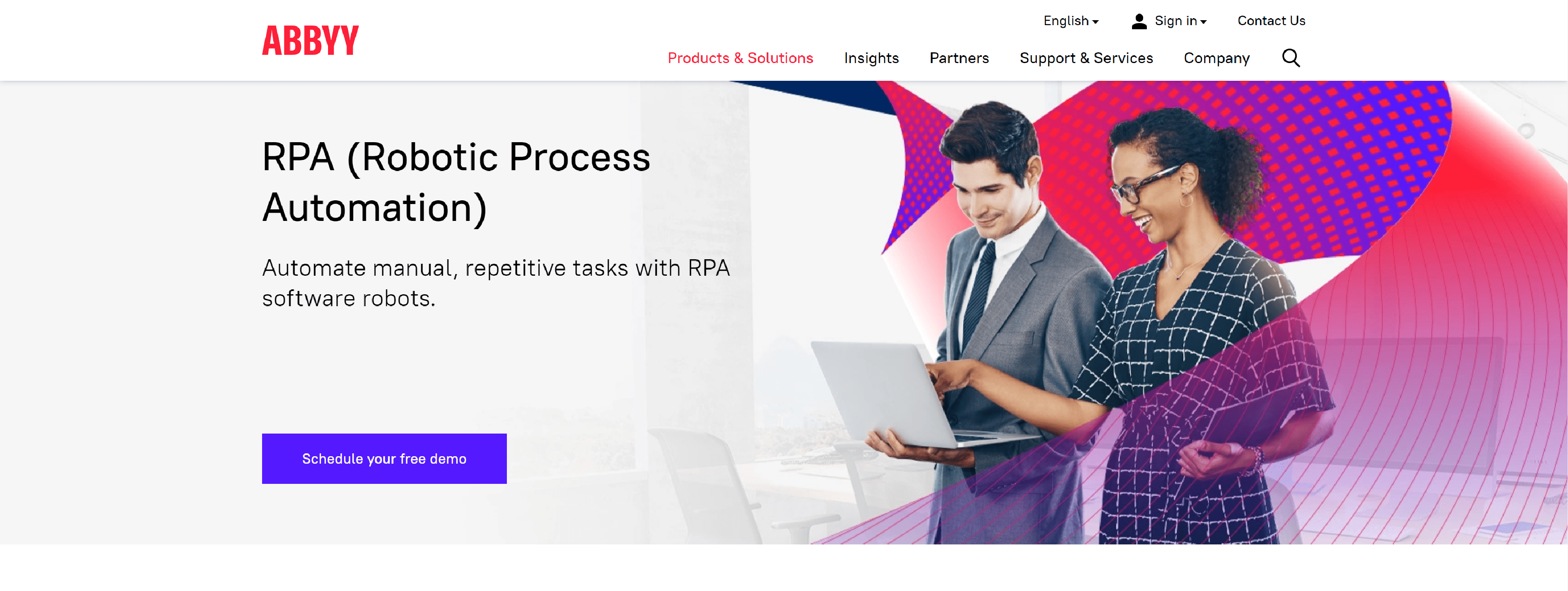
ABBYY helps enterprises gain a complete understanding of their business processes to accelerate digital transformation with a platform enabled with RPA, AI, NLP and OCR.
- Discover the best opportunities for RPA
- Identify the limitations of RPA capabilities
- Upskill your robots
- Expand your use of RPA
FORTRA

At Fortra, we’re creating a simpler, stronger, and more straightforward future for cybersecurity by offering a portfolio of integrated and scalable security solutions.
- Mimic Manual Tasks
- Automate Integrations
- Enable Innovation & Collaboration
- Scale Your Digital Workforce
ZAPTEST
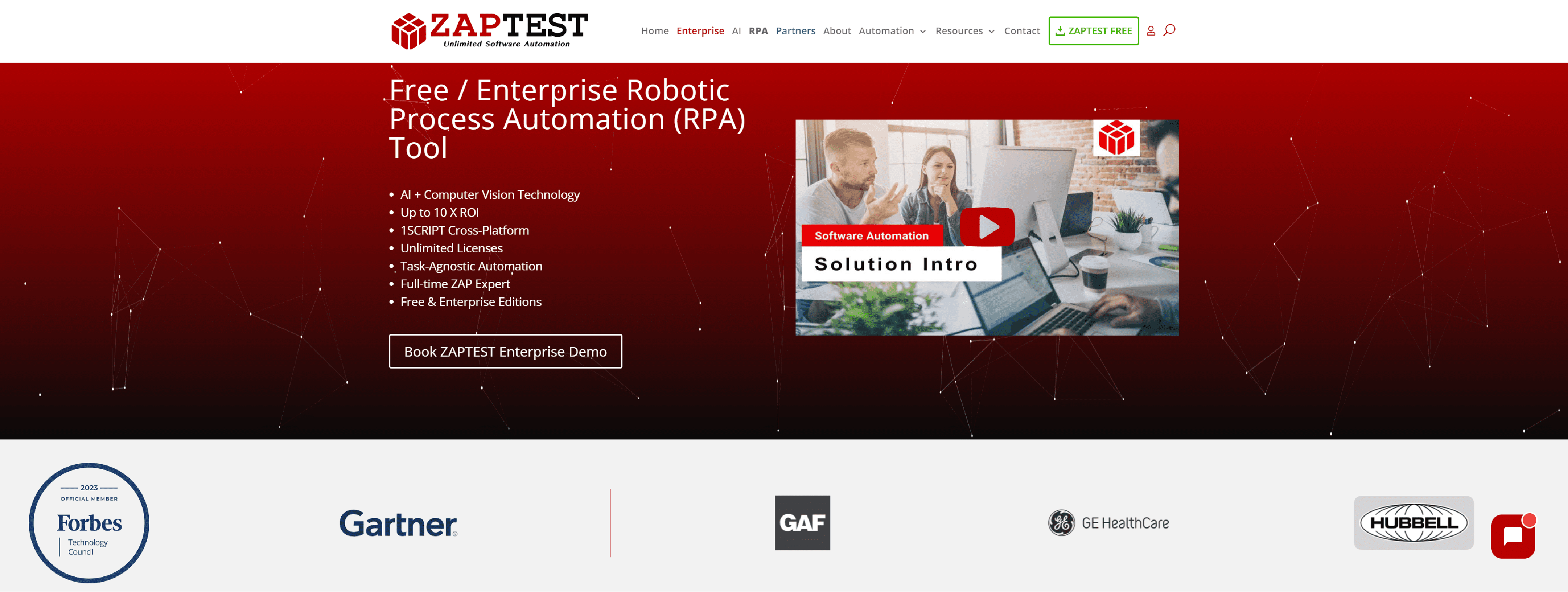
ZAPTEST is full-stack, cross-platform Enterprise-level RPA software, also offering a free edition, designed to remove repetitive tasks from the daily workflow through automation so your employees can focus on profit-making core business tasks.
- High ROI
- Unlimited Licenses
- 1 Click Document Conversion
- 1SCRIPT Implementation
- Cross Platform
- Cloud Device Hosting Management
- Parallel Execution
- Cross Application
- Unlimited Licenses
NICERPA
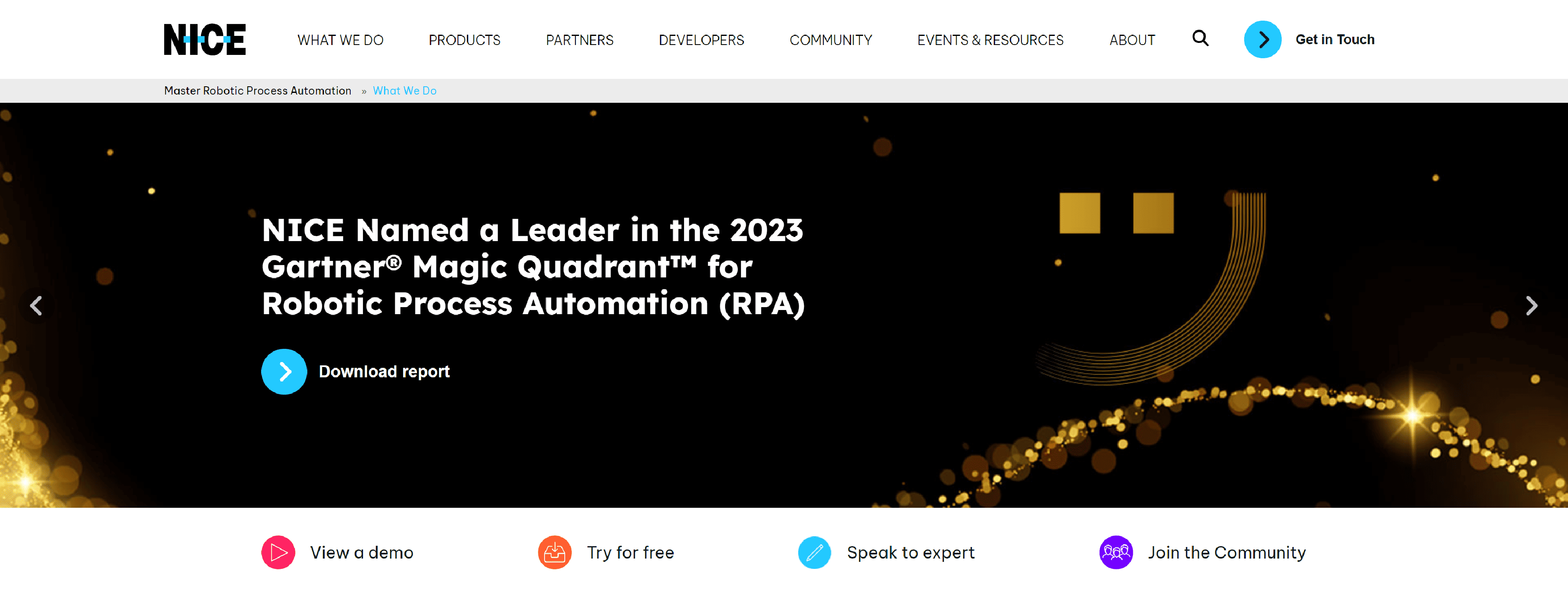
NICE Robotic Process Automation (RPA) makes routine desktop tasks easy, fast and error-free, for improved efficiency, customer satisfaction and employee engagement.
- Seamless integration across systems
- Robot design and development
- Robotic control room
- Flexible, Secure, Resilient
DYNATOS
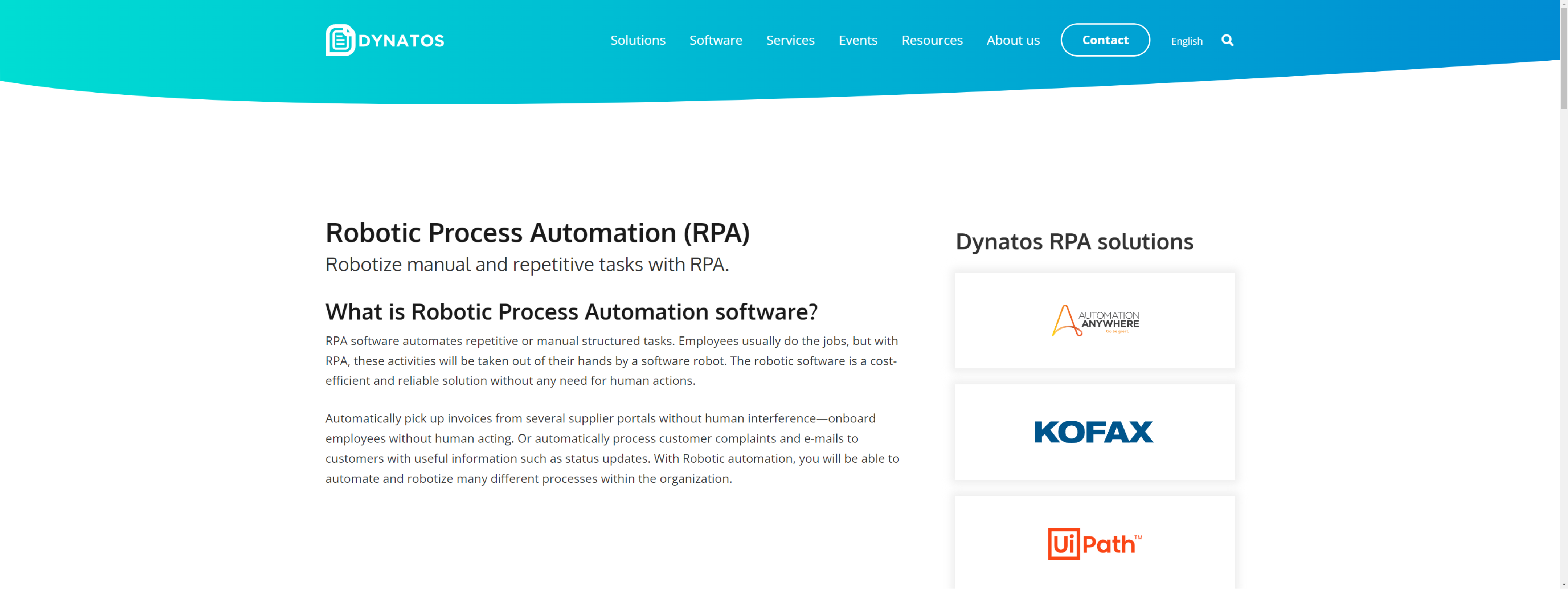
Intelligent Finance Automation of Purchase-to-Pay, Order-to-Cash and other financial processes.
- Open and process e-mails and save attachments
- Applications login and processing (including Citrix)
- Online website login, handling, and extraction
- Automate file archiving
- Follow logical rules such as if and then
- Make calculations
- Extract data from documents
- Data input to forms
- Merging data from multiple sources
- Copy and paste data
- Extract and reformat data into reports or dashboards
COMIDOR
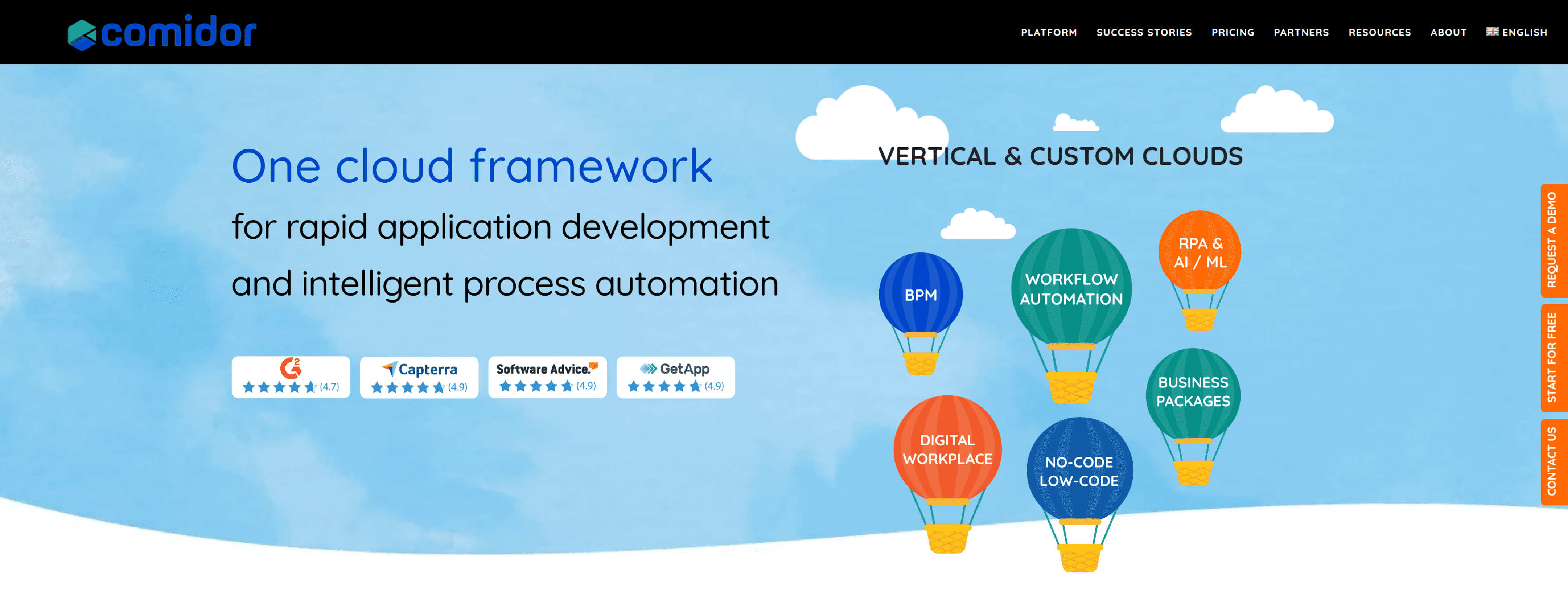
At Comidor, we strive to provide the highest-quality Robotic Process Automation software, combined with Low-Code and other Hyper-Automation capabilities, so your business can easily automate and manage repetitive tasks.
- Increased Productivity
- High-Level Accuracy
- Trusted Analytics
- Cost-Effective Solution
- Improved Security
- Enhanced Speed
- Higher Customer Satisfaction
KEYENCE
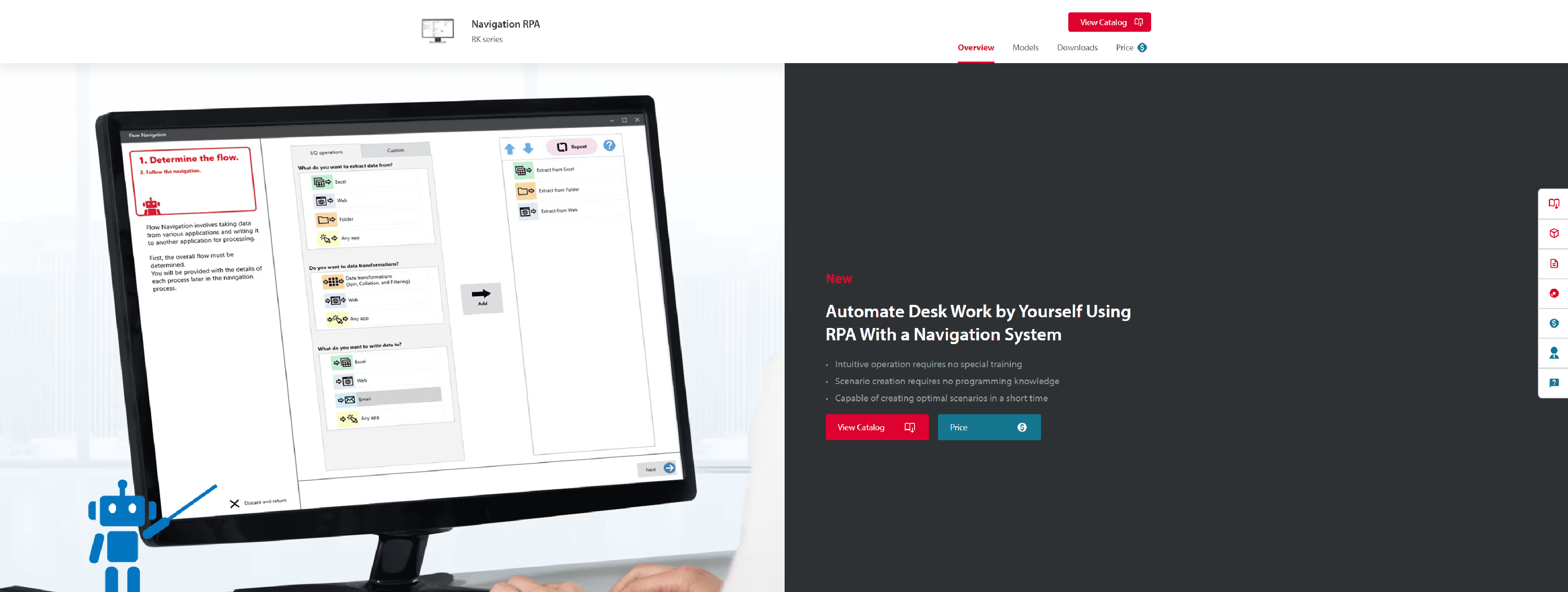
KEYENCE America provides RK series; The RPA RK Series, which is equipped with a navigation system, allows anyone regardless of technical aptitude to automate operations without the need for knowledge or experience.
- 24/7 Operation
- Reduce Human Errors
- Minimize Overspecialized Tasks
- Reduce Tedious Tasks
ROBOTIQ.AI
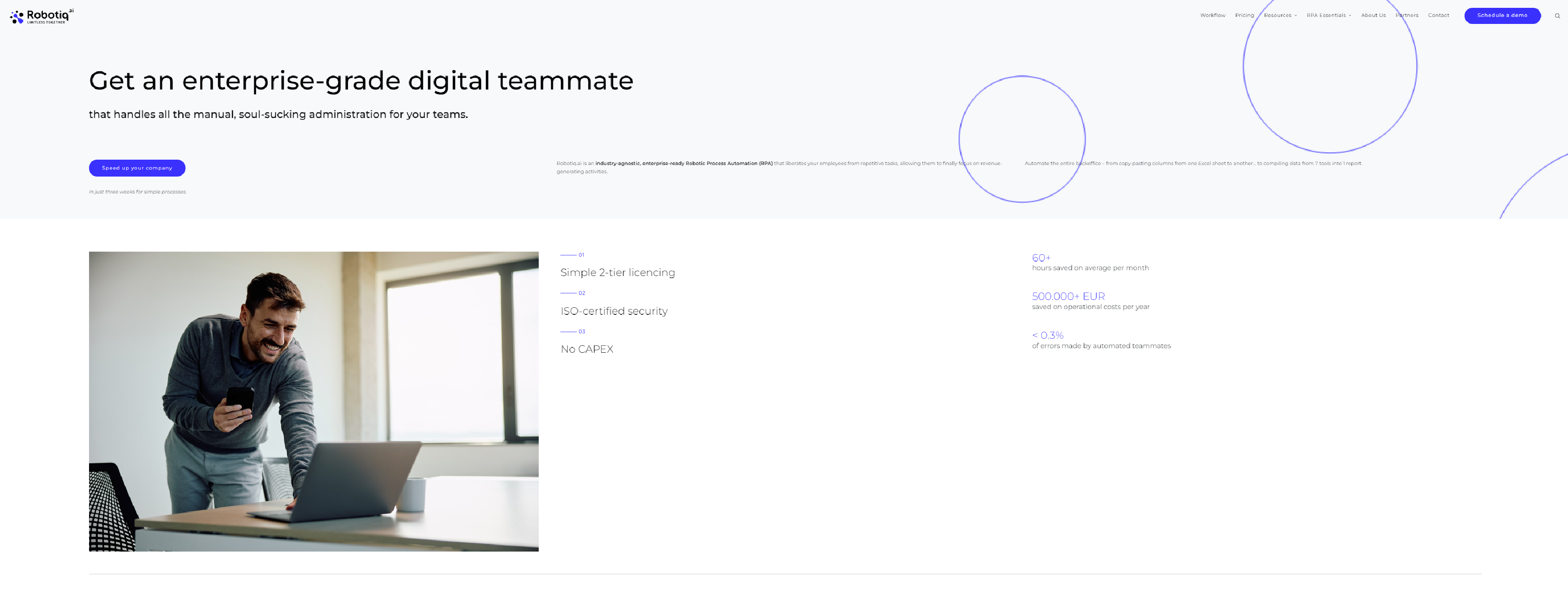
Robotiq.ai is an industry-agnostic, enterprise-ready Robotic Process Automation (RPA) that liberates your employees from repetitive tasks, allowing them to finally focus on revenue-generating activities.
- Enterprise readiness
- Simple pricing
- Stress-free implementation
KOFAX
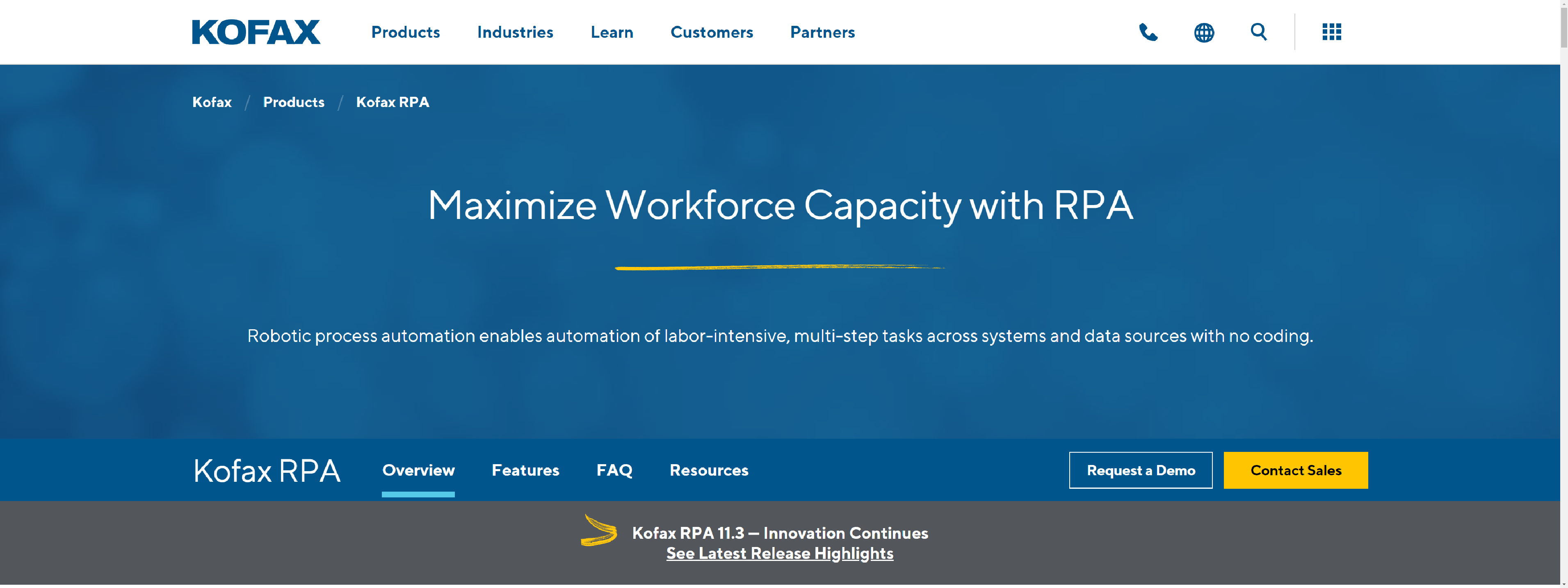
Kofax intelligent automation solutions help you work like tomorrow, today, by digitally transforming your information-intensive business workflows.
- Maximizes workforce capacity and efficiency
- Eliminates errors and improves outcomes
- Hyperautomates digital workflows
- Improves technology investments
PEGA
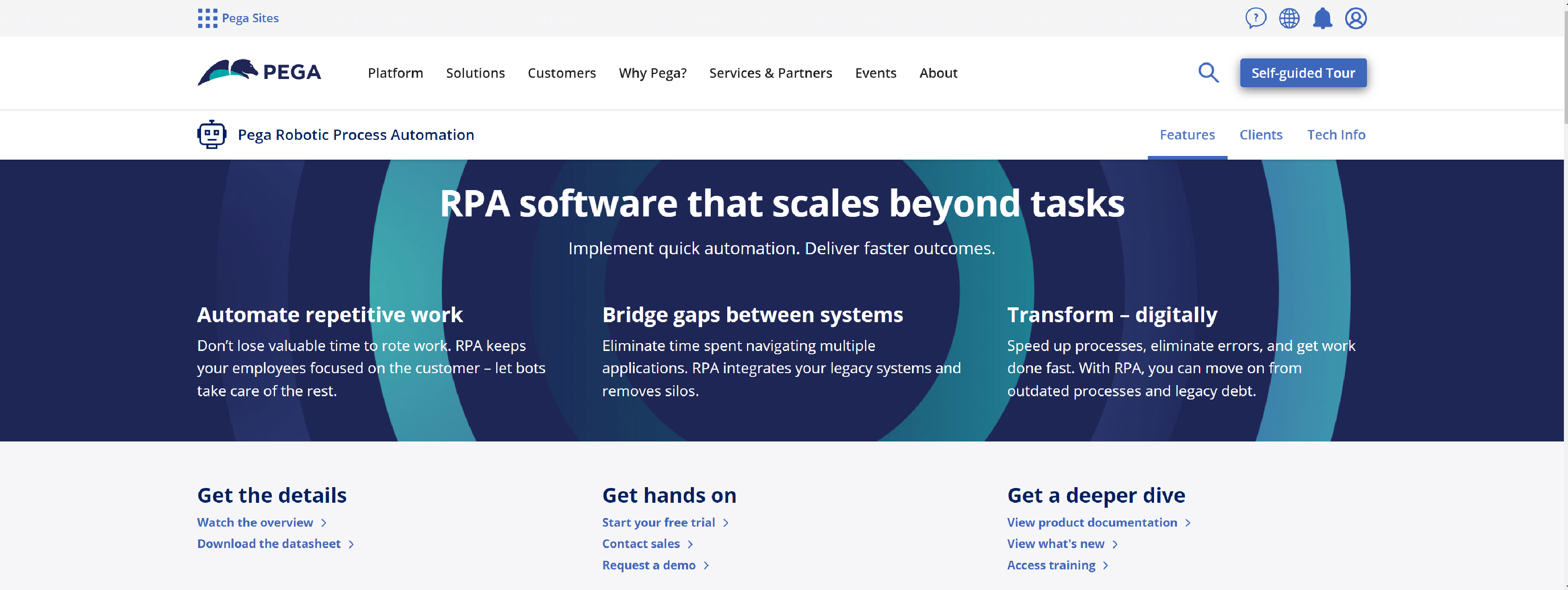
Pega RPA brings you faster value and faster outcomes, and it goes beyond automating tasks. With Pega Robotic Process Automation, you’ll bridge the gap from legacy apps while paving the road to digital transformation, as part of an end-to-end intelligent automation journey.
- Bots and humans can work side by side
- Bots that offer optimization and path to digital transformation
- Maximize your digital workforce
- Automate email triage
- AI for self-healing automations
- Use desktop mining to automate strategically
APPIAN
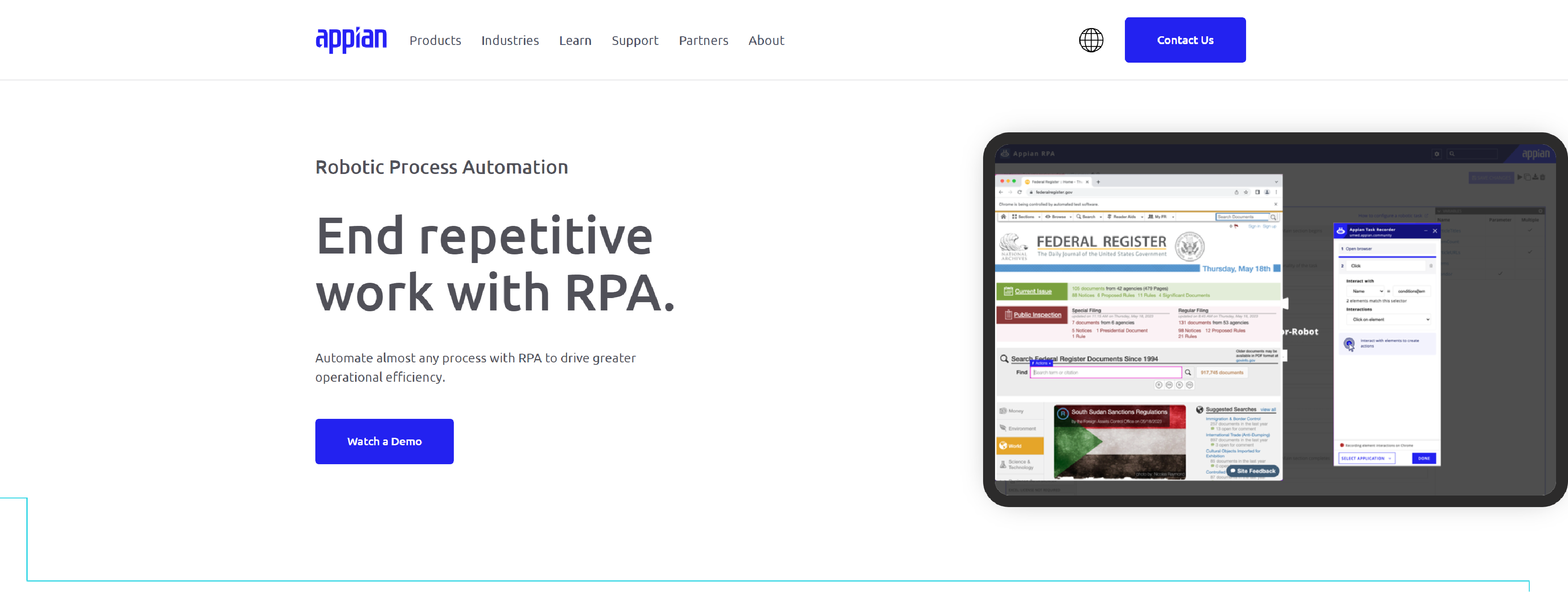
Appian – unleash digital innovation, drive business efficiency, and connect customers, employees, and systems in end-to-end business processes.
- Fast, easy bot production
- Seamless workflow orchestration
- Full platform access
- Broken down data silos
XEROX
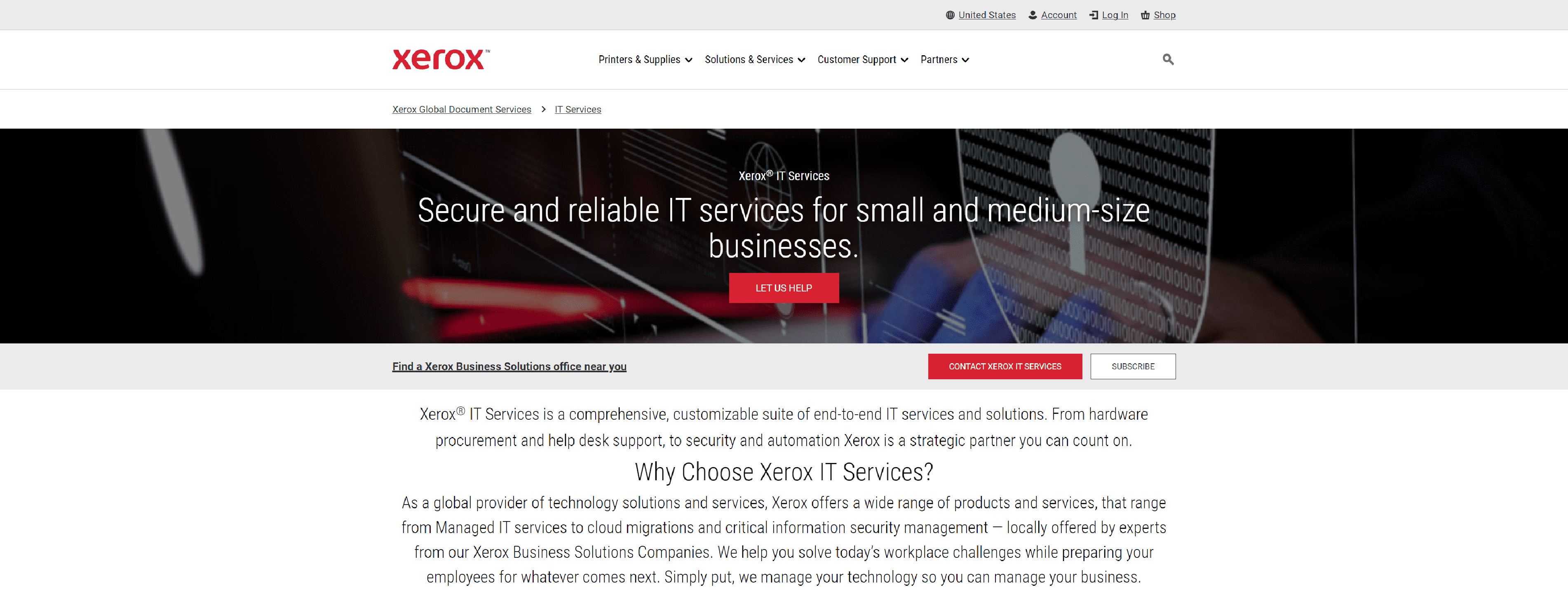
Xerox IT Services is a comprehensive, customizable suite of end-to-end IT services and solutions.
- IT Hardware & Software
- IT Product Support and Services
- IT Professional Engineering Services
- Managed IT Services
- Information Security / Cybersecurity
- Automation
- Data Solutions
DATAMATICS TruBot
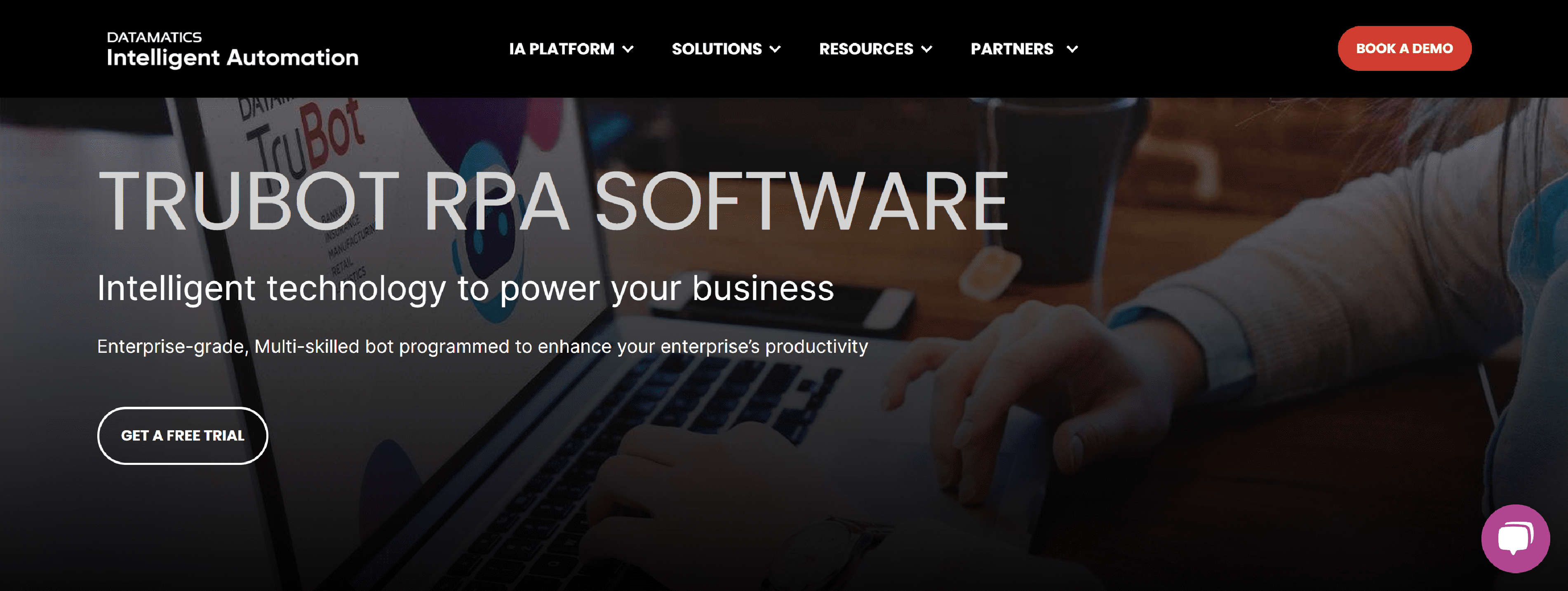
Datamatics TruBot is an enterprise-grade RPA software bot that automates repetitive tasks.
- Multi-skilled bot
- Ease of use
- Low code design and development
- Full control of RPA program
- Enterprise-grade security
- Real-time analytics
- UI automation with enterprise applications
- Zero bot footprint
HYLAND
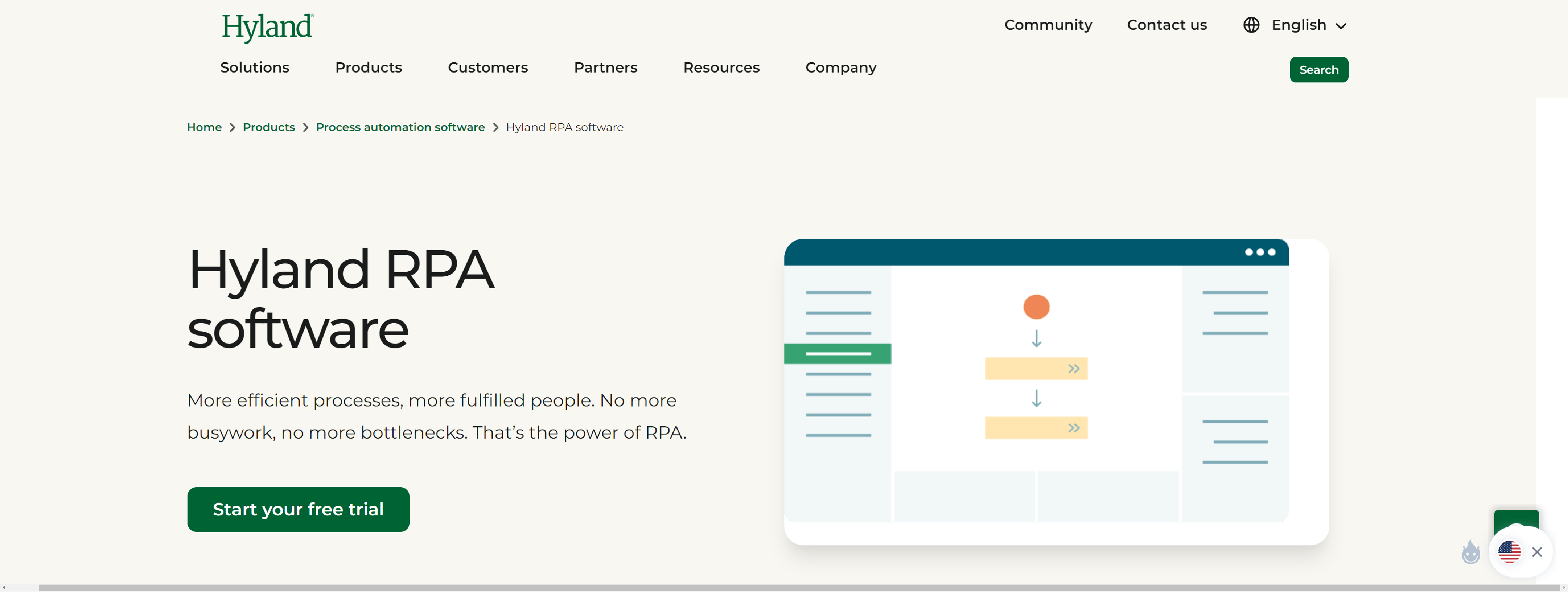
Hyland – elevate your workflows with Hyland RPA. Streamline processes, enhance efficiency, and drive productivity with intelligent automation.
- Analyze tasks, processes and workflows to optimize automation
- Design and build new automations easily
- Run automated processes enterprise-wide
- Manage automations from one central interface
AUTOMATIONEDGE
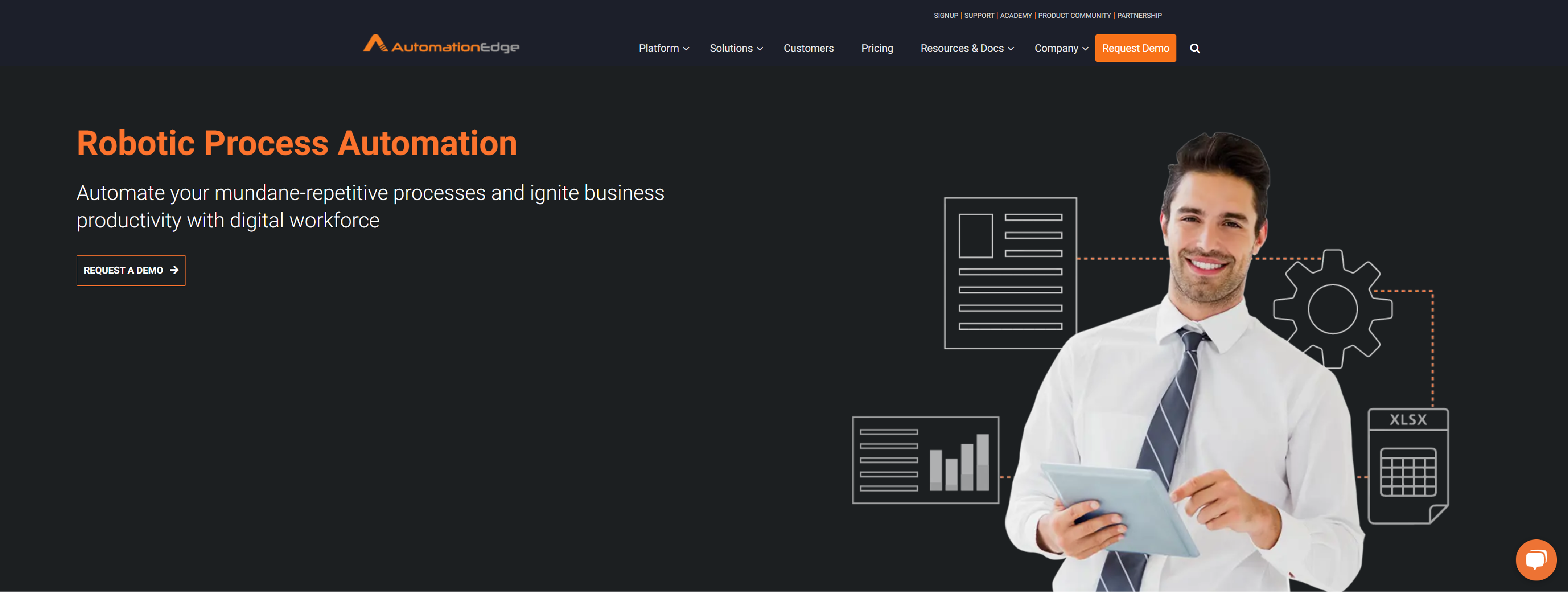
AutomationEdge Robotic Process Automation creates a digital workforce for organizations to run operations round the clock without errors. It is one of the fastest RPA tools in data processing.
- RPA No Code, Low Code and Pro Code Automation Platform
- Lower TCO With Multi-threading, Parallel Processing
- How Our ETL and iPaaS, Helps RPA Processes
- AutomationEdge Cloud and On Premise
- ETL and iPaaS
CEVITR
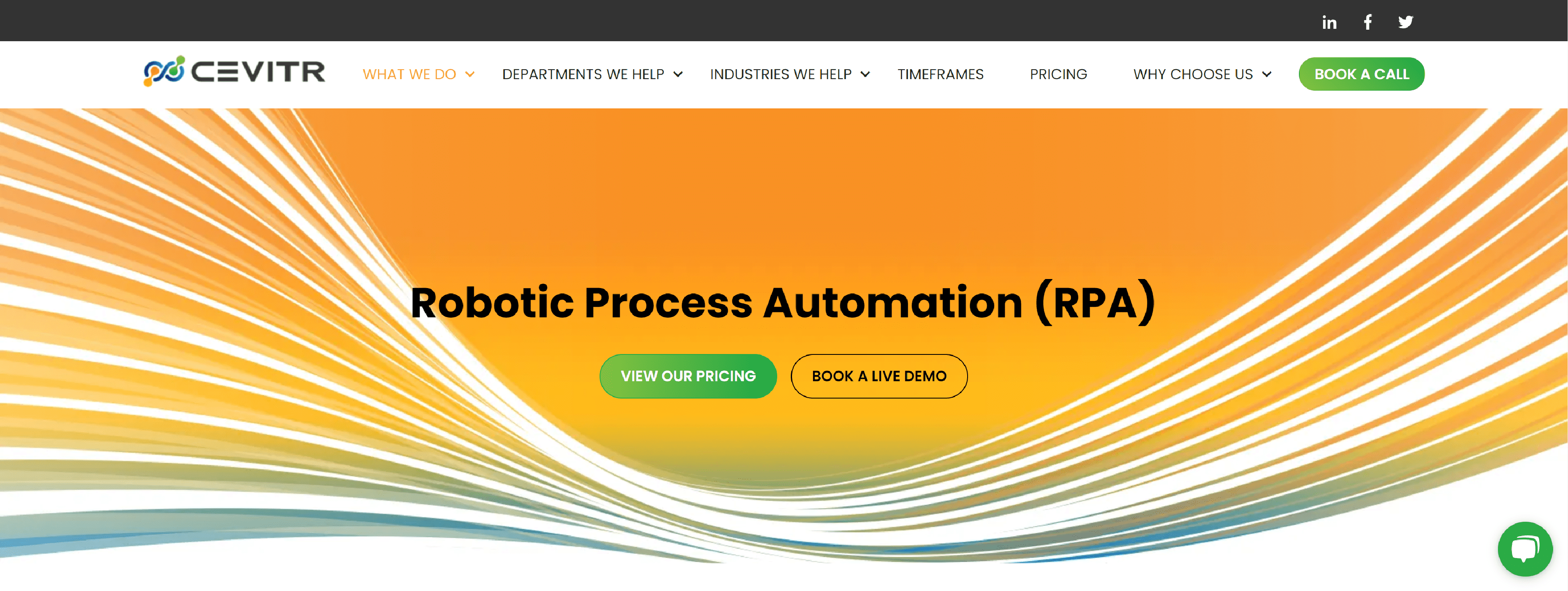
Cevitr provide some of the best robotic process automation services perfect for any business. Automate your computer-based tasks with our robotic process automation solutions!
- Improved Employee Satisfaction
- Significant Productivity Increase
- Cost Gains – Savings and Avoidance
- Additional Revenue Streams & Cashlow
- Improved Compliance
- Longer Execution Windows with 24 Hour Digital Workers
- Secure Handling of Sensitive Data
- Higher Quality of Output
- Improved Data Hygiene
- Better SLAs to Clients
- Better Customer Relationships and Retention
- Ability to Scale Faster (up or down)
Q: What is Robotic Process Automation (RPA) software?
A: RPA software is a technology that uses virtual robots or software bots to automate repetitive and rule-based tasks in business processes. These bots can mimic human actions and interact with various systems and applications to perform tasks such as data entry, data manipulation, and process execution.
Q: How does Robotic Process Automation work?
A: RPA software works by connecting to various systems and applications in an organization’s IT infrastructure through APIs or user interfaces. Once connected, the software bots can interact with these systems to retrieve information, perform actions, and manipulate data as programmed. The bots can be scheduled to run at specific times or triggered by certain events.
Q: What are the benefits of using Robotic Process Automation software?
A: Some benefits of RPA software include increased efficiency and productivity, improved accuracy, reduced costs, enhanced compliance, and faster processing times. By automating repetitive and mundane tasks, RPA frees up human employees to focus on higher-value work and tasks that require creativity and critical thinking.
Q: What kind of tasks can be automated using Robotic Process Automation?
A: RPA can automate tasks such as data entry, data extraction and manipulation, form filling, report generation, data validation, file and folder management, data synchronization, and many other routine and rule-based tasks. RPA can be applied to various business processes across different industries.
Q: Is programming knowledge required to use Robotic Process Automation software?
A: Some RPA software platforms have a visual or low-code interface that allows users to automate tasks without extensive programming knowledge. However, depending on the complexity of the tasks and processes you want to automate, some programming skills may be required to create more intricate automation workflows.
Q: Can Robotic Process Automation software integrate with existing systems and applications?
A: Yes, most RPA software platforms are designed to integrate with various systems and applications commonly used in organizations. They can interact with legacy systems, web applications, APIs, databases, ERP systems, CRM systems, and more. Integration capabilities vary among software providers, so it’s important to ensure compatibility with your existing infrastructure.
Q: Is Robotic Process Automation secure?
A: RPA software can be made secure by implementing appropriate security measures such as user authentication, encryption of sensitive data, and restricting access to automation workflows. It is crucial to follow industry best practices and ensure that appropriate security measures are in place to protect sensitive information and prevent unauthorized access.
Q: Can RPA replace human employees?
A: RPA is not necessarily aimed at replacing human employees but rather augmenting their capabilities. It is best suited for automating repetitive and rule-based tasks, enabling employees to focus on more complex and value-added work. RPA can help organizations optimize their workforce and improve overall efficiency.
Q: What is the future of Robotic Process Automation?
A: The future of RPA looks promising as organizations continue to explore automation opportunities across various business processes. With advancements in artificial intelligence and machine learning, RPA is expected to become more intelligent and capable of handling more complex tasks. The technology is also likely to integrate with other emerging technologies such as natural language processing and computer vision, further expanding its potential applications.